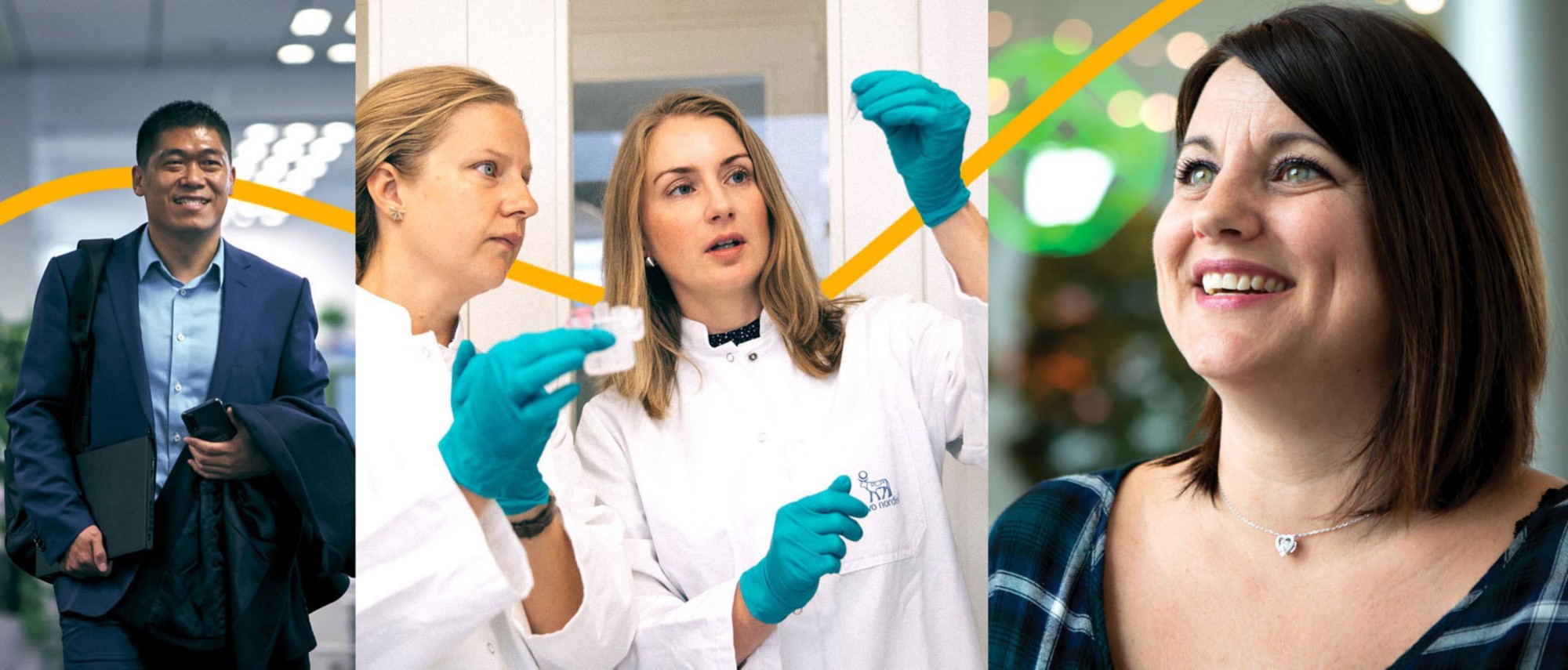In this article, we will be looking through various research, and
speaking with our Executive Vice President of People &
Organization Monique Carter, to look at whether a purpose-driven
workspace, can indeed, make you happier. We also investigate why
purpose and happiness can help employees avoid burnout and how
employee happiness contributes to being more creative and a better
team player.
According to a 2016 research report published in World Psychiatry, on Understanding the burnout experience, "Burnout is a psychological syndrome emerging as a prolonged response to chronic interpersonal stressors on the job."
In layman's terms, burnout is described as "a state of emotional, physical, and mental exhaustion caused by excessive and prolonged stress. It occurs when you feel overwhelmed, emotionally drained, and unable to meet constant demands."
However, there can be stressors in every job, so why is that some people can persevere while feeling a sense of fulfilment, and other experience burnout. A prevailing theory is that when there’s sense of purpose in employees’ work, it makes day-to-day tasks seem less stressful and helps them generally feel happier about the work they're doing.
In much of the research and reporting on the correlation between happiness and purpose-driven work, the result shows that purpose is the instigator of a stronger sense of employee happiness.
"I think that purpose is more than happiness. You can get happy people by paying them enough, making sure their working environment is nice or providing perks like free food. But is that enough? I don't think so." explains Monique Carter, our Executive Vice President of People & Organization at Novo Nordisk. "I think that happiness is the result of an emotional commitment that is driven by a feeling of purpose."
Monique Carter is not alone in her assessment of the importance of what she calls "emotional commitment." In a 2018 article in Forbes, contributing writer Dennis Jaffe described his thoughts on Why Meaningfulness Is A Better Life Purpose.
In the article, he references yet another article which discusses the scientific controversy about the relationship between meaning and happiness. In Jaffe's piece, he describes happiness as an "ephemeral" construct, which is more correlated with immediate or short term gratification. In contrast, he describes "meaningfulness" (or "purpose," as the terms seem to be interchangeable depending on the source) as more robust.
Purpose is more connected to long-term views of the future, can be more challenging, but also more rewarding. And as Jaffe describes it, those rewards are in the form of happiness in the "here and now."
There is more than just a general sense employee satisfaction that comes from feeling like you are working towards a larger purpose. There are also the benefits—like being more creative.
Ask anyone that you know whether they would like to be more creative in their lives, and you'd more than likely be hard-pressed to find anyone that would answer, "No."
Like happiness, being more creative is another trait that the vast majority of us would see as a positive addition to our lives. And as we have already established that finding purpose in your work can lead to happiness, let's look at how that can help us to become more creative as well.
“When questions and challenges get bigger and more substantive, then we see that people rise up to them and become more creative in their approaches to solving them,” explains Professor Marjolein Lips-Wiersma, author of The Map of Meaningful Work .
“What is interesting is that when people see a bigger purpose, they start to attribute their own meanings to it—or how it is meaningful to them. This individual meaning motivates creativity on a day to day level, but when a bunch of individuals collaborate with that creativity it can empower a bigger purpose.”
In another article in Forbes, looking at The Science Of Happiness And The Creative Brain, it shows that boredom and stress can have detrimental effects on people's ability to think creatively. As both boredom and stress are contributing factors to burnout, as mentioned earlier, the picture starts to become much more explicit regarding the significance of employee happiness—and a sense of purpose.
“It’s essential that employees feel a sense of happiness and personal fulfillment with their jobs. Empowering people to feel purpose in what they are doing builds trust amongst colleagues, it sparks creativity when contributing to problem solving tasks, and is becoming an increasingly essential ingredient for any successful organization,” says Monique Carter.
You can probably see where we are going with this by now. Yet another benefit that people can see as a result of feeling purpose-driven and happy at work is a stronger sense of community and an increase in collaborative and team-driven skills.
In a comprehensive Gallup report, using data collected from more than 195,600 U.S. employees, more than 31 million respondents, and insight from advising leading Fortune 1000 companies, it found "that simply feeling like you're part of a team of people working on a task makes people more motivated as they take on challenges."
Digging through the mountains of research and report issues over the last decade on the topics of employee happiness and workplace environments, it becomes clear that while employees can always find happiness in short-term and immediate ways, the key to lasting happiness in the workplace is to find purpose and meaning in their roles and ways to contribute to not only their company but also their colleagues and society as a whole.


